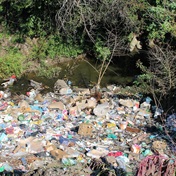In October 2018, when President Cyril Ramaphosa invited investors for our first investment conference, I was still a partner at PriceWaterhouseCoopers, assisting black firms to expand their businesses through strategic assets.
I was close to concluding one of my biggest deals with a black consortium looking to buy a commercial bank in South Africa. The consortium comprised of former and current top bankers and corporate executives. But halfway through, we hit a major funding hurdle.
I was dealing with highly-skilled black South Africans with the potential to disrupt the white-dominated financial services sector, but they were hindered by the lack of available finance. According to the Reserve Bank, you need to have R250 million available to acquire a banking license. They needed financial assistance to acquire such a high-valued asset, so they headed off to the United Kingdom to look for investors. But, due to the state of our economy at that time the investors were weary of investing billions of rands in South Africa.
A new way of doing business
Earlier that year, the country had been facing a number of political and economic crises which weighed heavily on our investor confidence. Enter President Cyril Ramaphosa, a wave of Ramaphoria, and a new dawn. One of his first calls of action was to go on an investment drive, and we saw a wave of investors coming back to South Africa. Suddenly, some black professionals and businesses had access to global investments. That’s when I met my partners from Diaz Reus US and Europe. And in November 2019, we launched Diaz Reus Africa.
As South Africa entered the lockdown at the end of March, I was in the middle of completing transactions with five other African nations as part of the Diaz Reus legal team. Our aim is to effectively bridge the gap between global investors and African projects, so that we can access more funding for African governments and businesses using our global skills and access.
The Covid-19 pandemic has forced Africa to review the way it does business. We need to focus on the Pan-African trade deal, encouraging African nations to work together as a collective so that we can rise above the economic decimation that the pandemic will bring. Rather than seeing each other as rivals, African nations must work together, using and pooling our abundant resources, skills and abilities. This is the only way we can change the way the world sees Africa.
The agenda at the African Union (AU) must focus on Africa coming together to reverse the effects of Covid-19, both socially and economically. Whenever African nations do gather in Addis Ababa again, we must critically examine how business and government can work together and how African businesses can consolidate, share and trade with each other. The era of regional competition must end if we are to survive the inevitable economic downturns that Covid-19 will bring.
Investing in tech and infrastructure
African governments will have to invest in technology and infrastructure, reduce red tape and simplify trade in Africa, if we are to truly be part of a competitive global economy. Ports, infrastructure links and communication technology have to be prioritised both at the AU level and the regional level allowing Africans to easily share labour, capital, goods and services among each other. An integrated plan for implementing the fourth industrial revolution across Africa is key. Global investors might be weary of travelling for some time after Covid-19 and some borders might take time to allow people to enter, but through technology we can all still access investment opportunities in Africa.
Foreign Direct Investment (FDI) inflows have shrunk from a 2008 peak of $58.1 billion to a 10 year low of $41.8 billion in 2017. Post-Covid-19 we are likely to see those numbers going down even further. But if Africa develops an integrated plan of promoting investment in the continent and governments - together with the private sector - cut the red tape and make it easier to do business between African countries, then we will be able to attract global investors back to our shores.
It is lamentable that Africa currently has the lowest percentage of intra-regional trade in the world at 18%, compared with 70% in Europe, 55% in North America, 45% in Asia and 35% in Latin America. According to the African Export-Import Bank, the current 18% figure could more than double within the first decade after implementation of the African Continental Free Trade Area (AfCFTA).
The world is going through a crisis and it needs a strong Africa to rise up. Divided we will fall, together we can conquer Covid-19.
Yamkela Makupula is the CEO of Diaz Reus Africa and leads the African growth strategy. Views expressed are her own.




 Publications
Publications
 Partners
Partners











